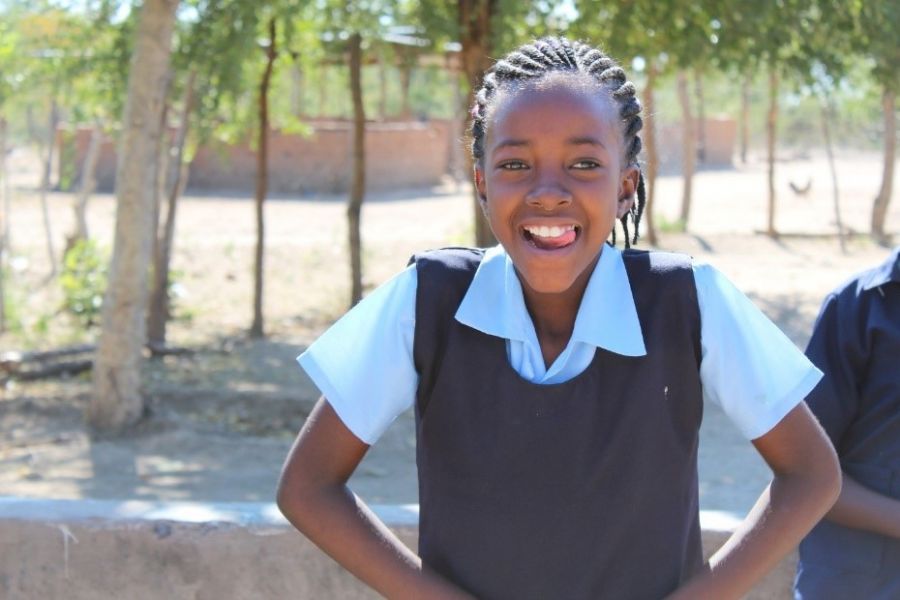
Blessings is a 12-year-old girl from Zambia. She attends Mweela School in the Sinazongwe district. This school is currently considered one of the best in the area, but that hasn’t always been the case. Eleven years ago, this same school had an enrollment of 112 boys and only 86 girls. Over the last decade, the school’s population has grown to 190 boys and 282 girls, a ratio unprecedented in Sinazongwe.
In 2008, Operation Eyesight drilled a borehole near the Mweela School. Bringing clean water closer to the surrounding communities meant that women and girls didn’t have to walk as far for water. Mothers could now walk their daughters to school on their way to get water, instead of needing their daughters to miss school to get water with them.
Marriam Matimba, the school’s headteacher, says that the school is well known in the area for its sanitation opportunities. “A school with adequate access to clean water and sanitary facilities is a girl-friendly school,” Marriam explains.
When communities don’t have access to clean water and sanitary facilities, women and girls bear the brunt of the opportunity cost. When girls have to fetch water or are unable to attend school because of a lack of sanitary products and facilities, they miss out on valuable educational and social opportunities.
What do boreholes have to do with preventing avoidable blindness? More than you might think. We drill boreholes in communities where trachoma is endemic. Trachoma is a bacterial disease that leads to irreversible blindness when it’s not treated, and a lack of fresh water and adequate hygiene is one factor that contributes to the spread of trachoma. Due to factors such as gendered household duties including cleaning and caregiving, women are much more susceptible to contracting trachoma than their male counterparts.
A new borehole in a community doesn’t just provide access to clean water. It helps build resilient communities, prevents illness and can even increase the enrollment of girls in schools. Boreholes help give girls like Blessings a strong start so that she has opportunities for her future.
Operation Eyesight is an international development organization working to prevent blindness and restore sight in developing countries. We work in partnership with local governments, hospitals and community development teams, building essential resources that give all people, including the poorest, access to the help they need.
Publié:
janvier 8, 2020
Auteur:
Ashley Anderson, Digital Marketing Coordinator, Operation Eyesight
Catégories:
Partager cette publication: